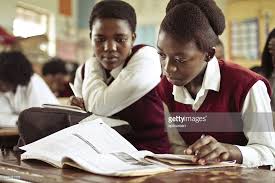THE DECLINING ART OF READING IN AFRICA

As nourishing food is imperative for human growth, so are good books to quantitative education. Hitherto, reading culture in Nigeria was very high which in turn made the nation’s education system one of the best on the African continent. Then, books especially literary works were available everywhere. Hence, libraries were well stocked and people patronized these reading places.
However, this trend, which started before independence, witnessed a boom. But after 1960, it started eroding due to so many factors. Chief among these obstacles is the downturn of the nation’s economy. Since the country’s economy became comatose in the 1980s, people’s purchasing power becomes affected as well. In the same vein, publishers of various books, magazines and journals closed operations due to high cost of production on one hand and lack of patronage on the other. This development however led to the death of reading materials.
Coming to the heels of the economic factor is that of reduction in authorship. Compared to the 1960s when many authors were making waves, the brain drain that characterised the 1980s contributed in no small measure to meager production of books, including educational and instructional materials. As a result of ‘checking-out’ by the nation’s best brains, especially in the university system, book production suffered a set-back and the reading culture abated.
.jpg)
Furthermore, inconsistency in the country’s educational policies gave rise to run-of-the-mill authors who could not keep pace with global acceptable standard in educational materials publishing. For instance, during the hey days of free education of the Late Chief Obafemi Awolowo, books which were distributed to students and pupils wear uniform in nature and rich in content. All subjects’ textbooks had authors who knew their onions and understood the niceties involved in publishing educational books.
For example, textbooks like the popular “Alawiye” in primary schools and “Modern Biology” in secondary schools were some of the books that were authored to cater for the needed knowledge in the fields they represented. Again, the proliferation of private schools with their attendant teaching methods affected the reading culture. Pupils are now mostly taught with audio-visual in place of the old but effective methods of teaching. Nowadays, they teach more songs than reading. Therefore, the culture of reading is not inculcated in the pupils once they can speak English fluently.
Moreover, the availability of internet with its ancillary services has greatly affected the reading culture especially among the younger generation of pupils and students who spend more time on social networks. With the above, the real sense of reading hard copies of materials is lost. Hence, the low patronage being experienced by the libraries.
Furthermore, libraries too have become ghost of their former selves as many of them lack the necessary texts that could attract sustainable readership. That aside, some of them lack amenities that could make reading conducive for patrons.
.jpg)
.jpg)
To arrest the mercurial decline in reading culture, observers said all the stakeholders must come together to chart a new course. Government must create the policy somersault in the nation’s education system must be looked into with a view to ensuring a consistent policy that will bring back the good old days of publishing reading materials that would stimulate readership.